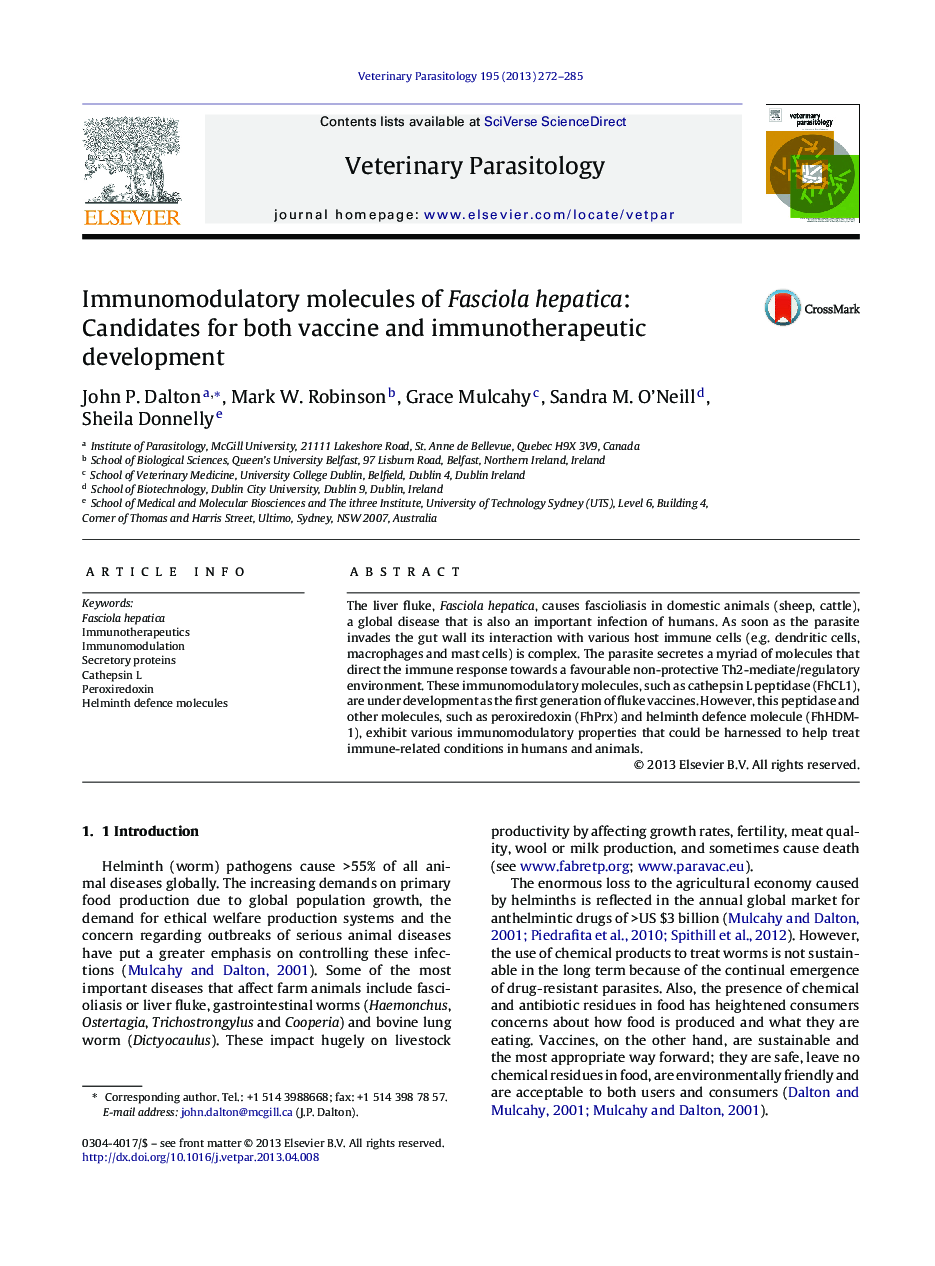| Article ID | Journal | Published Year | Pages | File Type |
|---|---|---|---|---|
| 2470033 | Veterinary Parasitology | 2013 | 14 Pages |
The liver fluke, Fasciola hepatica, causes fascioliasis in domestic animals (sheep, cattle), a global disease that is also an important infection of humans. As soon as the parasite invades the gut wall its interaction with various host immune cells (e.g. dendritic cells, macrophages and mast cells) is complex. The parasite secretes a myriad of molecules that direct the immune response towards a favourable non-protective Th2-mediate/regulatory environment. These immunomodulatory molecules, such as cathepsin L peptidase (FhCL1), are under development as the first generation of fluke vaccines. However, this peptidase and other molecules, such as peroxiredoxin (FhPrx) and helminth defence molecule (FhHDM-1), exhibit various immunomodulatory properties that could be harnessed to help treat immune-related conditions in humans and animals.
